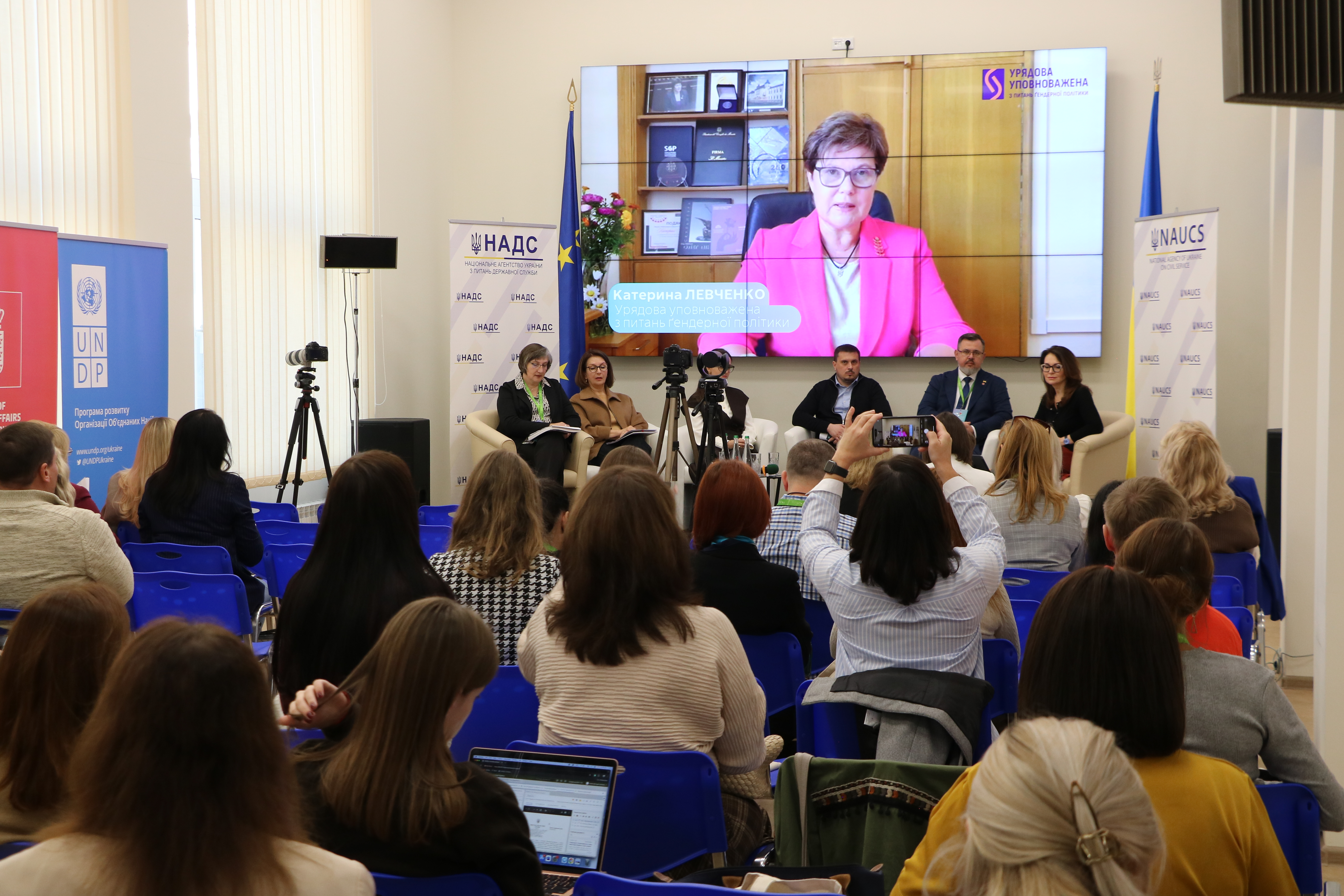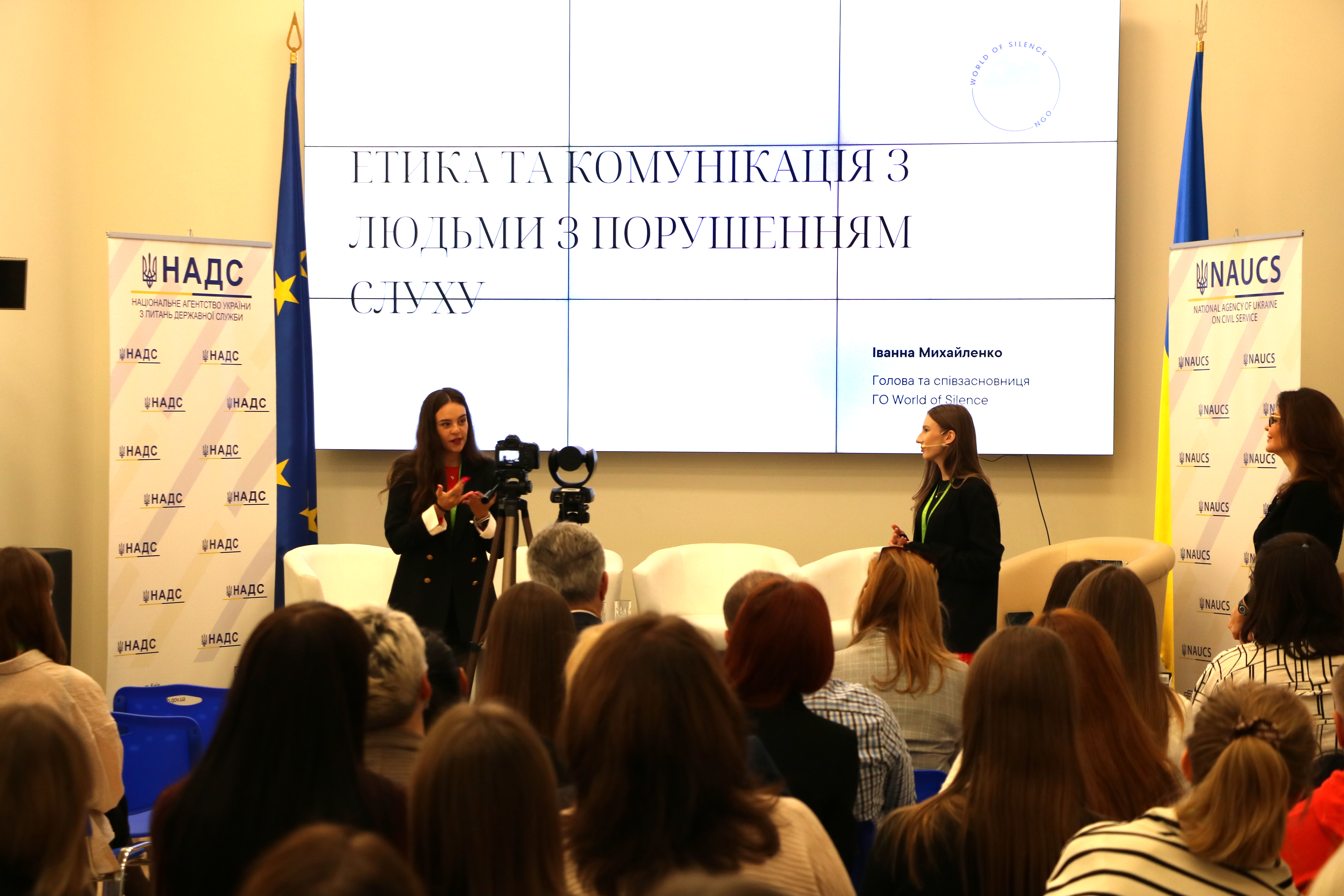How to create a system where every person feels heard, valued and protected: an international seminar "Barrier-free public service: equal rights and opportunities, inclusion and a safe environment" was held as part of the Richelieu Forum
"It is worth remembering that accessibility, inclusion and equal opportunities are not only about Ukraine. This is a global trend enshrined in international documents. For example, the UN Sustainable Development Goals directly say: leave no one behind. The Council of Europe and the European Union also emphasize that democratic institutions can be strong only when they are accessible to all citizens. And it is important for us to show that Ukraine is here - in a common European and global direction," - emphasized the Head of the NAUCS Nataliia Aliushyna during the opening of the seminar.
The event became the key event of the third day of the Richelieu Forum and brought together authorized persons on accessibility and gender policy, specialists from personnel management services and structural units on veteran policy, experts on inclusion, psychological health and development of support for veterans, representatives of international technical assistance projects.
The seminar program included three substantive panels:
- “Gender-sensitive and inclusive recovery”, during which they talked about the integration of equality principles into the reconstruction processes of Ukraine and examples of practical solutions.
- “Barrier-free public service: systemic changes in action”, which discussed the adaptation of veterans, flexible working conditions and training public servants in communication tools;
- “Barrier-free starts with each of us”, which discussed the culture of public service, care for mental health.

The leitmotif of the event was that the creation of a barrier-free society starts with each of us. After all, everyone can make the space around them more comfortable and friendly. Barrier-free starts with small actions that change our attitude and our capabilities.
A separate part was the interactive master class “Hear the gesture” in Ukrainian sign language from Ivanna Mykhailenko, head of the NGO “World of Silence”. Ivanna taught basic gestures for communicating with people who have hearing problems. This gave all participants of the event the opportunity to feel how important it is to create an environment where everyone should be heard. And everyone was convinced that it is not at all difficult.
In addition, at the end of the seminar, the participants attached cards with their own thoughts on what barrier-free means in their opinion to the symbolic map "Wings of Barrier-Freedom". It is quite indicative that most of the answers defined barrier-freedom as the presence of respect and understanding. This is a reminder that we can all change the world for the better if we do it together.

The seminar showed that barrier-freedom, inclusion, gender equality are not only technical solutions, but also everyday culture and systemic policy that takes into account the needs of every citizen. Therefore, the participants agreed to continue cooperation to implement effective practices in public administration and create barrier-free conditions for each and every one.
